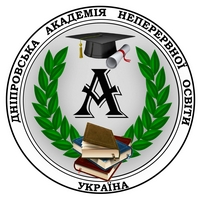THE DEVELOPMENT OF AN ALGORITHM FOR TEACHER’S CHOOSING THE NATURE SCIENCE EDUCATION MODEL CURRICULUM
Abstract
The mechanisms of teacher's choice of a model curriculum for integrated courses in the natural sciences are investigated. Heuristic algorithms for such a choice are proposed. Among them, a chaotic-search method based on the general indexing of the corresponding model program effectiveness forecast is offered, in which the teachers were asked to give a general assessment of the program and describe the rationale for the choice. The same teachers were offered to make a choice based on the so-called criterion-evaluation algorithm of choice. Namely, for the model programs, 12 parameters are proposed, which are subject to expert evaluation by teachers in an бordinal scale with ten gradations. We considered the index calculated as the sum of 12 estimates for the relevant parameters. This index allows further ranking of programs in order of preferences. Thus, an appropriate program бьselection algorithm is formed. The proposed criteria contain both subjective and objective components, so they should include information about the possibility of implementing the appropriate program depending on the level of the educational institution teacher and the material and organizational support professional competence. The article analyzed the dependence of the model educational programs choice on the example of integrated science courses and the «Geography». The statistical analysis of the conjugation tables showed inconsistency in the frequency distributions of course selections depending on the selection algorithm. This means that the criterionevaluation algorithm of choice gives different results in the relation to the chaotic-search algorithm. The question arises whether it is possible to trust the criterion-evaluation algorithm. It is noted that the answer to this question can be obtained only after analyzing the implementation of model programs. Along with the criterion-evaluation algorithm, a binary choice algorithm is proposed, where each of the criteria is evaluated on a 10-point scale, then a pairwise analysis is carried out for all criteria and, based on the statistical criterion of signs, a conclusion is made about the advantages of the program. Obviously, such an algorithm for hosting several programs could
not work correctly, so it needs to be improved.
References
2. Гура Т., Рома О. Діяльнісний підхід у базовій середній освіті: від педагогічної теорії до освітянської практики. Нова українська школа у базовій середній освіті: впевнені кроки Запорізької області: науково-методичний посібник / відп. ред. Т. Є. Гура ; КЗ «ЗОІППО» ЗОР. Запоріжжя: ЗОІППО, 2022. 303 с.
3. Державний стандарт базової середньої освіти: Постанова КМУ від 30.09.2020 № 898 «Про деякі питання державних стандартів повної загальної середньої освіти» URL: https://mon.gov.ua/ua/osvita/zagalna-serednya-osvita/nova-ukrayinska-shkola/derzhavnij-standart-bazovoyi-erednoyi-osviti (дата звернення: 05.10.2022).
4. Кірман В. К. Векторна модель математичної компетентності учителя математики та підходи до її ідентифікації. Актуальні питання природничо-математичної освіти. 2017. Вип. 2 (10). С. 94‒101.
5. Кірман В. К., Соколова Е. Т. Системний аналіз математичної компетентності вчителя географії. Наукові записки. Серія: Педагогіка. 2020. Вип. 1. С. 41–51.
6. Кірман В., Чаус Г. Структурно-параметрична модель математичної компетентності вчителя біології та підходи до її ідентифікації. Актуальні питання природничо-математичної освіти. 2020. Вип. 1 (15). С. 100–112.
7. Коваленко Ю. Інноваційні технології в освіті: досвід Нової української школи. Наукові записки Національного університету «Острозька академія». 2018. № 26. С. 141–147.
8. Комарницька Т. Психологічні та педагогічні аспекти розвитку творчих здібностей учнів у Новій українській школі. Педагогіка і психологія професійної освіти. 2020. № 3. С. 49–54.
9. Кочерга Є., Чаус Г., Романець О. Розвиток професійної компетентності вчителів природничих дисциплін на курсах підвищення кваліфікації. Вересень. Науково-методичний, інформаційно-освітній журнал. 2020. Т. 4. № 2–3 (85–86). С. 54–60.
10. Лисенко Т. Нова українська школа: проблеми та перспективи. Науковий часопис НПУ імені М. П. Драгоманова. Серія 14. Теорія і методика мистецької освіти. 2019. № 31. С. 135–142.
11. Нова українська школа. Концептуальні засади реформування середньої школи. Київ: Міністерство освіти і науки України, 2016. 40 с. URL: https://mon.gov.ua/storage/app/media/zagalna%20serednya/nova-ukrainska-shkola-compressed.pdf (дата звернення: 05.10.2022).
12. Овчарук О. Проблеми впровадження Нової української школи та шляхи їх вирішення. Науковий вісник Херсонського державного університету. Серія: Педагогічні науки. 2018. № 47. С. 92–96.
13. Онищук Л. А. Нова українська школа: реалії та перспективи. Український педагогічний журнал. Київ, 2018. № 1. С. 47–53.
14. Пшенична Л. Новий учитель Нової української школи. Педагогічні науки: теорія, історія, інноваційні технології. 2019. № 1 (85). С. 61–83.
15. (16 Сидоренко В. В. Reform of training school leaders in terms of implementation of the Concept «New Ukrainian School» In: Керівник нової української школи: світоглядно-професійні орієнтири: зб. наук. пр. НПУ імені М. П. Драгоманова. Київ, 2017. pp. 148–153.
16. Турчин В. М. Теорія ймовірностей і математична статистика: основні поняття, приклади, задачі. Дніпропетровськ: Вид-во Дніпропетр. ун-ту, 2005. 470 с.
17 Collie R. J., Granziera H., Martin A. J., Burns E. C., Holliman A. J. Adaptability among science teachers in schools: A multi-nation examination of its role in school outcomes. Teaching and Teacher Education, Volume 95, October, 2020, P. 103–148.

 ISSN
ISSN  ISSN
ISSN 

